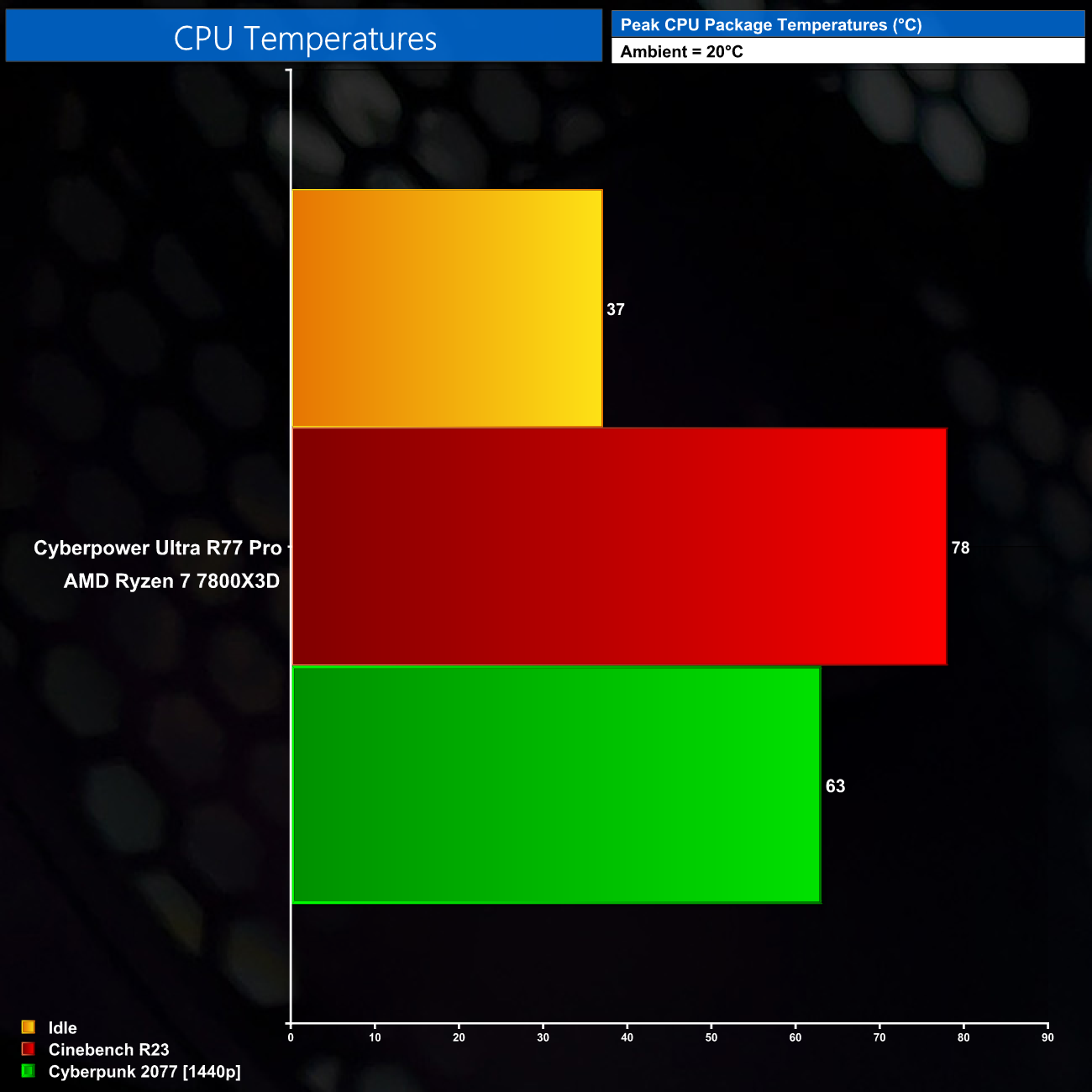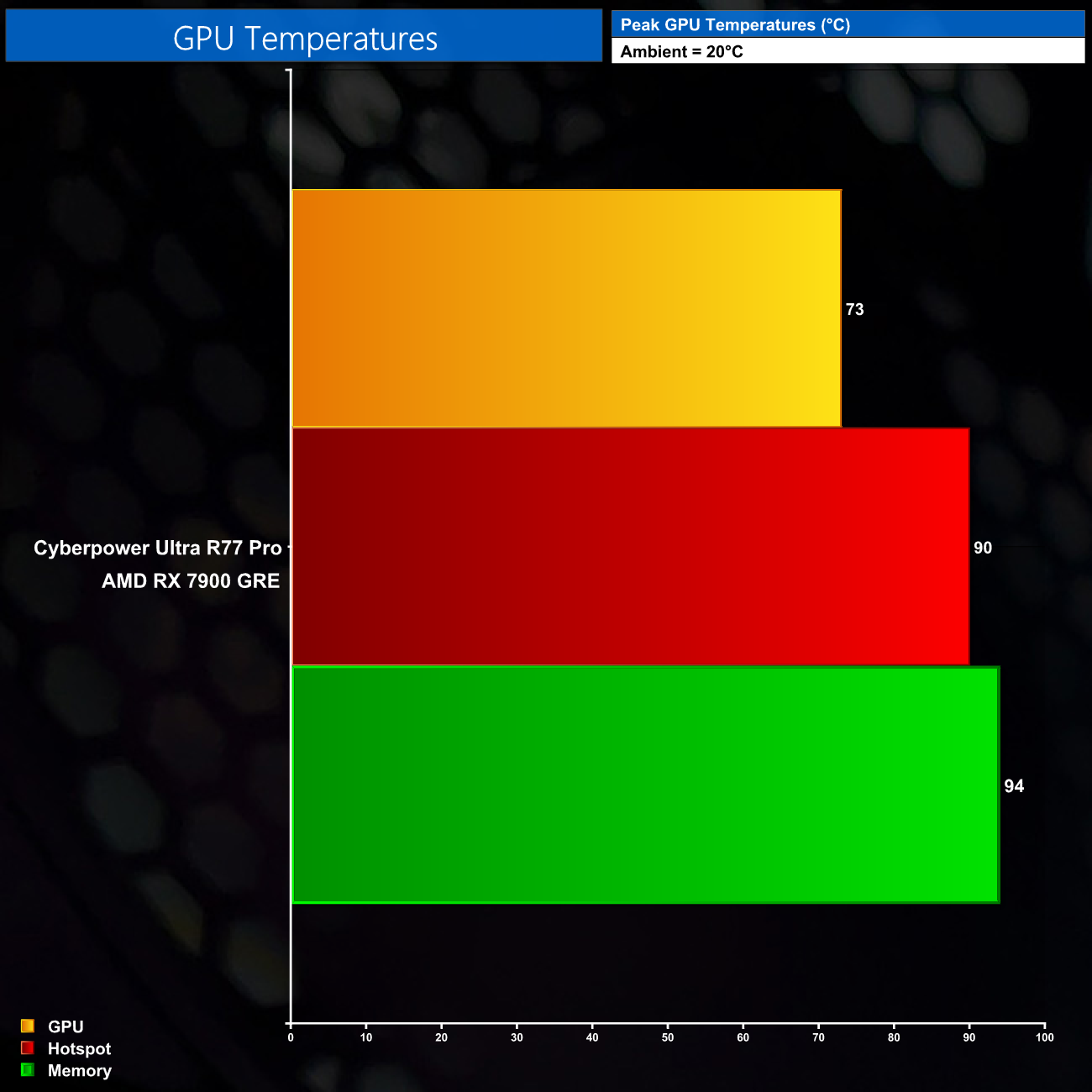With the CPU running at 4.8-4.9GHz depending on the workload, thermal performance is pretty decent. After a 30-minute run in Cinebench, the Tdie reading was only 78C, and it ran much cooler while gaming – even in Cyberpunk 2077, which is pretty CPU-heavy.
The GPU is generally fine too. The hotspot and memory temperatures both reached 90C or-so, which is a touch warmer than I'd like but as this is an AMD reference card, it's about as expected. AMD maintains up to 110C is safe here so we're well below that.
Noise levels aren't always the greatest, however, particularly when the CPU is loaded to the max, as we see in Cinebench. In that instance, it produced 43dBa of noise, which isn't outrageous, but the main problem was the pitch of the fans. The included RGB front fans in the 3000D Airflow don't appear to be of the greatest quality and while spinning at 1800rpm or so (as they get up to when under load) they do emit quite a whiny resonating hum. Gaming is less offensive as the CPU isn't loaded so heavily, but even so the fan pitch is a bit annoying, and be sure to check out the video review to hear the soundtest.
To try and help matters I ran an extra test where I reduced fan speed to 1000rpm on all case and radiator fans. This made a huge difference and dropped noise to 37dBa while cutting out a lot of that annoying whine. It didn't make much of a difference to thermals either, with the CPU now running just 3-4C hotter, which is still well below TJMax, while the GPU appeared unaffected.
Lastly, total system power draw is very reasonable. We saw below 140W at the socket for an all-core CPU load, and then just over 370W for a 1440p gaming session in Cyberpunk 2077. That means the PSU will be operating at peak efficiency, while there is loads of headroom to upgrade both the CPU and GPU down the line.
 KitGuru KitGuru.net – Tech News | Hardware News | Hardware Reviews | IOS | Mobile | Gaming | Graphics Cards
KitGuru KitGuru.net – Tech News | Hardware News | Hardware Reviews | IOS | Mobile | Gaming | Graphics Cards






